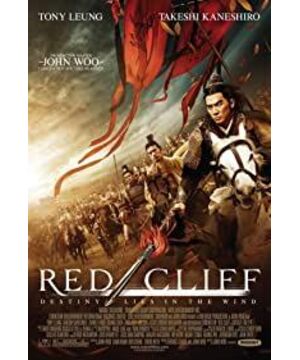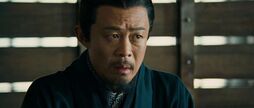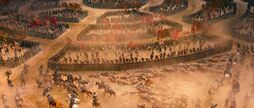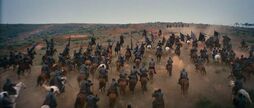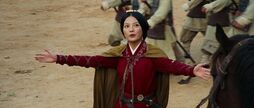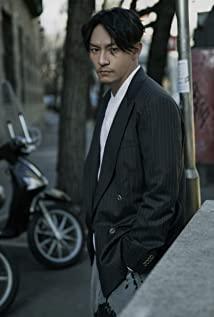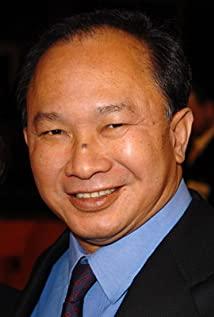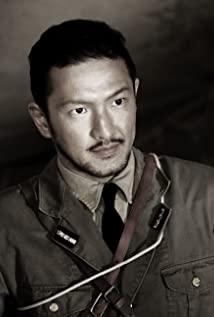This TV series, which should be renamed "The Red Cliff War", tells the brutal war that broke out between three great names. They were the right minister Oda Mengtoku who controlled the Gyeonggi region and the emperor, Uesugi Nakamou, who ruled the southeast and had the title of "Tiger of the South", and the slogan "Respect the king and fight against the barbarian" and led the wild samurai to rise up against the Oda family.
Kobayakawa Gentoku was unfortunately defeated by Oda Mengde’s army in the Makino battle. If it weren’t for his brave retainer, Wen Zilong, who rushed into the enemy’s battle seven times, Gentoku’s son Zen might have died in the chaos and might have even changed as a result. The course of history. Even in the face of such a formidable enemy, the Xuan De Army also demonstrated amazing courage. In order to protect the Xuande army and civilians from retreating safely, one of the elders of the family, General Maeda Yunchang, has the title of "Run First" and attacked the enemy line, even attacking before Oda Mengde's main line. If it hadn't been for Meng De's banners to protect him to death, then Meng De would most likely have died under Maeda Yunchang's "Blue Dragon Yanyue" Tai Sword.
The victorious Oda Mengde led a 1 million army to chase Kobayakawa Gentoku, but the real goal was to take the opportunity to annex Uesugi Nakamou's territory. The elder Sanada Kong Ming, the author of the Xuan De family, understood Meng De's scheming, so he went to Soochow and tried to persuade Uesugi Naka to merge together and form a coalition to resist Oda Mengde. In the end, the Southern Army and the Northern Army met in Chibi, so there was the famous "Chibi War" in history.
The reason why I say this is because the movie "Red Cliff" claims to have cost 600 million yuan, but the scene pattern produced is small and the content is trivial. It is more like the Japanese Warring States era when 30,000 to 40,000 people were fighting. Therefore, there are not many grand scenes under the lens, but there are always many close-ups and close-ups, with no more than 100 people coming and going. Because of this, the generals are more like samurai and have a lot of time to participate in tea ceremony, ikebana and judo, which explains why a horse is born, a flute is corrected*, a cow is lost and regained, and two male jazz. The bass player's fighting music.
Even when dealing with various parts, "Red Cliff" does not reflect the two most shocking characteristics of soldiers: speed and impact. In the film, the infantry formation composed of a single layer of shields can actually stop the impact of Cao Jun's heavy cavalry units. From this approach alone, we can see how absurd the director's perception of power is. The generals actually attacked the enemy with foot combat, which shows that this film has nothing to do with ancient military affairs, but an ancient martial arts film. Think about it, the scene of hitting several enemies in the chest with a gun at the same time. How is this different from Jet Li’s version of Huang Feihong trained by Yuan Heping?
Why is there a dozen soldiers and a few guns in Kurosawa's movie so majestic? Because the soldiers have neat appearance, exquisite uniforms, and fast running speed, even an ordinary soldier has the ability to perform. The progress of "Red Cliff", which cost 600 million RMB, only reflects the upper body of the soldier-this time, the soldier played by the extra actor finally has a helmet and a beautiful chest helmet for his head. However, by looking at their hapless lower body, you can know why the war scene looks so procrastinated---they are still big crotch pants, big trouser legs, loose, nothing more than a piece of leggings tied on it. It's the soldier who just returned from planting rice seedlings, or the extra actor who pays ten yuan and two lunch boxes a day. It is a strange thing that such props and extras can perform the spirit of classical soldiers.
In fact, Wu Yusen's expressive power of traditional culture is simply incapable. One is the selection of actors and the design of roles. The Three Kingdoms was a war led by a group of nobles and scholars, and Wu Yusen could not show the bearing and grace of a Chinese nobleman at all. Cao Cao is the only character who can barely pass, Liu Bei is basically a secretary of the Anti-Corruption Bureau, and Sun Quan is a Hong Kong businessman and a gangster. Zhuge Liang, the incarnation of morality and wisdom in the Chinese heart, didn’t know why he had to add some "naughty elements" (Xing Chi Zhou played the pastor's words in "The King of Comedy"), and it turned into a simplified version. The Wen Chou Chou (see the movie "The Wind and Cloud"). The worst is Zhou Yu. Tony Leung obviously hasn't come out of "Lust Caution" and "Happy Together". The male-female-eating expression makes people feel that a paperclip position or a chrysanthemum in full bloom may appear at any time in the next second.
The second is the so-called gossip formation. This is a place that can shine, and the director can fully use his imagination, as long as he has a good understanding of the "array". The formation should include pits, smoke, deer villages, chariots, sandbags, trenches, and mobile soldiers. Although China's art of war and formations are rarely handed down to the world, there is always information available. But this kind of kung fu in the film is left to clothes, hairstyles, flags and various weapons, and it really takes superficial kung fu as superficial kung fu. The result is that the so-called formation is literally a combination of various deformations of a shield wall, which is a kind of large-scale group gymnastics. If group calisthenics is a military action, then Zhang Yimou should go to Shijiazhuang Army Command College as a professor, he seems more hopeful to become a generation of war gods.
"Red Cliff" is actually a very lazy movie, and Wu Yusen didn't show much creativity. He moved the modern urban interpersonal relationship he was good at to the Three Kingdoms era, replaced military with martial arts, replaced scene scheduling with CG, and forcibly added a lot of inexplicable jokes, and lasted the movie to 150 minutes alive. This is just the first episode. This is probably the only movie this summer that doesn't require the theater to turn on air conditioning. Just watching it is cold enough.
We used to say that there were no blockbuster films in China. It was because there was no Hollywood money to make big productions. The cost of "Red Cliff" is close to 100 million U.S. dollars, the famous director Dakas, but it is still like this. So, this is not a question of money.
+++++++++++++++++++++++++++++++++
*The influence of Japanese style can be seen everywhere in the movie "Red Cliff". Zhou Yu is known as "The song is wrong, Zhou Langgu", and is proficient in rhythm. Therefore, there is a saying "to get Zhou Lang's attention, from time to time the strings are strummed by mistake". However, Zhou Lang did not correct the fingering of the guqin in the movie, but improved a flute. Reminiscent of the obsessive state of the soldiers in the sound of the flute, one can't help but recall the Japanese allusion of "Who blows twigs under the moon" ( http://www.caobian.info/?p=1212 )
View more about Red Cliff reviews


